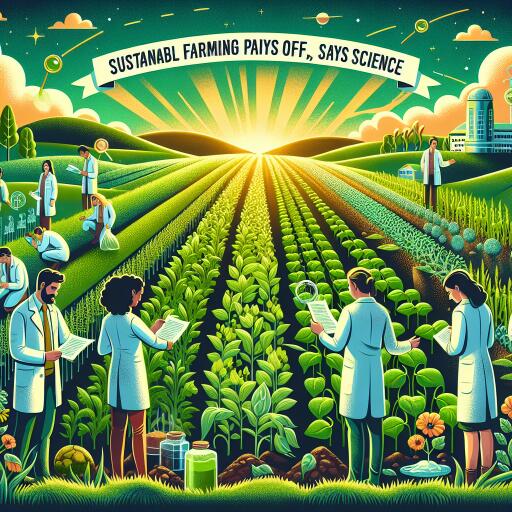
Sustainable Farming Does Pay Off, According to B.C. Scientists
In the lush landscapes of British Columbia, a paradigm shift towards diversified farming practices is showing promising results. The adoption of rotational grazing methods on a dairy farm in Meta, Colombia, serves as a beacon of success, doubling down on milk production and profit while adeptly navigating the challenges posed by shifting climate patterns.
The enduring pursuit for sustainable agriculture has uncovered a vital truth—diversification in farming is not just beneficial but necessary. A groundbreaking study, shedding light on a global scale, suggests that transitioning from monolithic, single-crop paradigms to a multi-faceted approach involving a variety of crops, animals, and farming techniques is key. This shift promises to sustain food production, increase farmers’ incomes, and mitigate the adverse effects on our environment and climate.
Historically, agriculture has leaned heavily towards intensive farming systems, marked by the extensive use of chemicals and a narrow focus on crop types to maximize yield. This approach, stemming from the so-called ‘Green Revolution’, brought with it a slew of environmental costs including heightened greenhouse gas emissions, biodiversity loss, and often, an unsustainable demand on water resources.
The research, involving an international team of scientists, delves into data collected from 2,655 farms across continents including Africa, Asia, the Americas, and Europe. These farms varied widely in their practices, from large-scale single-crop estates in Indonesia to those employing intricate mixtures of livestock alongside rotational crops and conservation efforts in Brazil.
The study’s findings are illuminating. Diversifying livestock and implementing soil conservation emerged as the most effective strategies to benefit both people and the planet. Moreover, while there’s no one-size-fits-all solution, a blend of farming strategies often led to substantial benefits, particularly for wildlife and food security.
One intriguing aspect of the study’s conclusion is the relationship between diverse farming practices and resilience against climate change. In regions like Malawi, where there has been a governmental push towards intensifying maize production, the results have been mixed. Farmers utilizing a more varied approach often enjoyed better nutrition and withstood the brunt of extreme weather events more successfully.
In North America, the narrative around industrial-scale agriculture has been one of ecological decline. The rampant use of fertilizers and the destruction of natural habitats have led to a steep decrease in biodiversity. However, the shift towards simplistic farming practices has not been without consequence, even in areas less central to agricultural production, such as British Columbia’s blueberry farms.
Addressing these challenges requires a holistic approach, one that integrates animals into farming systems in a sustainable manner. The concept isn’t about eliminating livestock from diets but optimizing their role within the agricultural ecosystem. This involves rethinking the spatial distribution of livestock and crop production to foster a more symbiotic relationship between the different facets of farming.
The study underscores the urgency for both developed and developing nations to recalibrate their agricultural practices. As more countries adopt mechanized agriculture, the push for monoculture threatens to become the dominant model. However, the findings advocate for high-tech solutions that rejuvenate traditional methods, creating a sustainable future for agriculture that benefits the environment and humanity alike.
Transitioning towards this new model of agriculture is fraught with challenges, from overcoming entrenched incentives for water-intensive crops to adapting seed varieties bred for monoculture. Moreover, shifting from global supply chains to local markets requires significant investment and innovation. Yet, embracing the best of traditional practices alongside modern techniques offers a forward-looking vision for agriculture—one that’s not only viable but vital for our collective future.





Leave a Reply